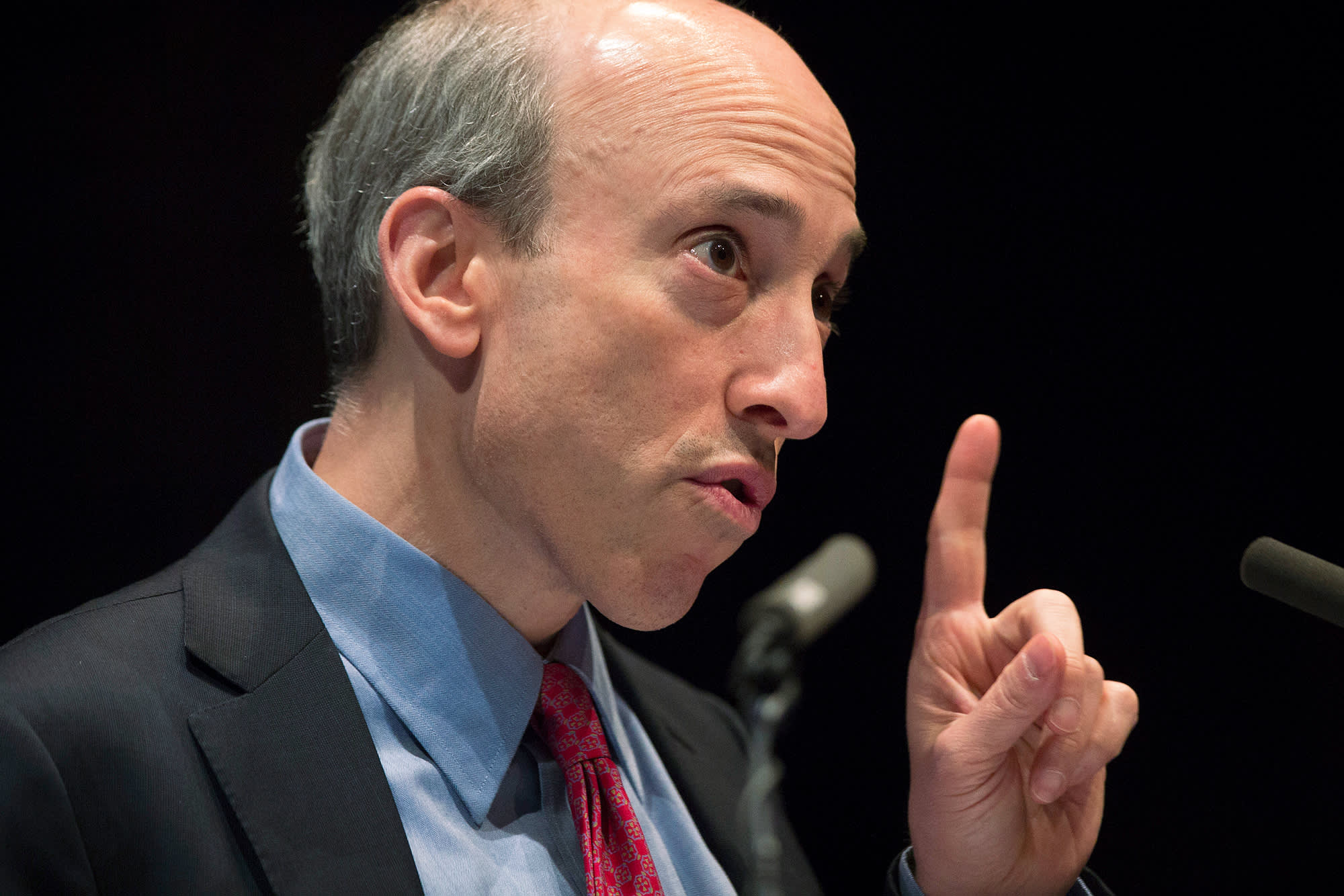Gary Gensler’s Anti-Crypto Crusade Was All for Show, According to Congressman
14.05.2025 22:00 1 min. read Alexander Stefanov
According to former Congressman Patrick McHenry, Gary Gensler’s hardline stance against crypto was more political theater than personal conviction.
In a recent podcast appearance, McHenry claimed that Gensler — while leading the U.S. Securities and Exchange Commission — privately acknowledged the value of digital assets and even supported innovations like token airdrops. But publicly, Gensler took a much tougher tone, which McHenry says was driven by pressure from progressive figures in the Senate and the demands of political survival.
McHenry believes this duality distorted crypto regulation and eroded trust in the SEC. He accused Gensler of misleading Congress during hearings on Ethereum’s status, despite the agency allegedly having an internal stance classifying ETH as a security.
The former lawmaker also criticized Senator Elizabeth Warren’s vocal opposition to crypto, suggesting it’s rooted in ideological bias rather than technical understanding.
Gensler, who will step down in January 2025, has stood by his view that most digital assets violate securities laws. Still, under his leadership, the SEC greenlit spot Bitcoin ETFs, including those from BlackRock, signaling a rare moment of openness amid an otherwise adversarial tenure.
McHenry sees the incoming leadership shift — with crypto-friendly Paul Atkins set to take over — as a chance to rebuild a more rational regulatory environment that won’t stifle innovation.
-
1
Ripple Faces Legal Setback as Court Rejects Bid to Ease Penalties
26.06.2025 16:54 1 min. read -
2
Coinbase Surges 43% in June, Tops S&P 500 After Regulatory Wins and Partnerships
29.06.2025 21:00 2 min. read -
3
Ripple Has Applied for a National Banking License
03.07.2025 7:00 2 min. read -
4
What Will Happen With the Stock Market if Trump Reshapes the Fed?
29.06.2025 13:00 2 min. read -
5
Barclays Blocks Crypto Credit Card Payments in Latest Blow to Retail Investors
26.06.2025 8:00 2 min. read
Charles Schwab to Launch Bitcoin and Ethereum Trading Soon, CEO Confirms
Charles Schwab is preparing to roll out spot Bitcoin and Ethereum trading, according to CEO Rick Wurster during the firm’s latest earnings call.
BlackRock Moves to Add Staking to iShares Ethereum ETF Following SEC Greenlight
BlackRock is seeking to enhance its iShares Ethereum Trust (ticker: ETHA) by incorporating staking features, according to a new filing with the U.S. Securities and Exchange Commission (SEC) submitted Thursday.
IMF Disputes El Salvador’s Bitcoin Purchases, Cites Asset Consolidation
A new report from the International Monetary Fund (IMF) suggests that El Salvador’s recent Bitcoin accumulation may not stem from ongoing purchases, but rather from a reshuffling of assets across government-controlled wallets.
Sberbank Moves to Dominate Russia’s Crypto Custody Sector
Sberbank, Russia’s largest state-owned bank, is preparing to launch custody services for digital assets, marking a significant expansion into the country’s evolving crypto landscape.
-
1
Ripple Faces Legal Setback as Court Rejects Bid to Ease Penalties
26.06.2025 16:54 1 min. read -
2
Coinbase Surges 43% in June, Tops S&P 500 After Regulatory Wins and Partnerships
29.06.2025 21:00 2 min. read -
3
Ripple Has Applied for a National Banking License
03.07.2025 7:00 2 min. read -
4
What Will Happen With the Stock Market if Trump Reshapes the Fed?
29.06.2025 13:00 2 min. read -
5
Barclays Blocks Crypto Credit Card Payments in Latest Blow to Retail Investors
26.06.2025 8:00 2 min. read


